KEY TOPICS
I'm back - in Southeast Asia (for now), and also to posting new episodes!
Being able to travel to other countries to conduct research is a privilege - and this needs to be appreciated mindfully
This privilege comes with responsibilities!
Making a meaningful impact is more possible than we often assume
Contributing to a thriving community of colleagues is one of the most important things we can do in conservation
How can those of us who are relatively privileged better fulfill our responsibilities as researchers and as humans? (sorry, I have no definitive answer, but things I would love for more people to think about)
TRANSCRIPT
Hello, hi, welcome back to the Conservation Realist! It's late April 2024, and it's been a busy several months, but I'm glad to be resuming this project. I'm Dr. Tara Sayuri Whitty and I'm a conservation consultant working primarily in the coastal realm. This is a side project of mine, kind of a little passion project, to share insights that I've learned over my years of working in the field, insights from the occasional interview that I arrange, and with this season, to increasingly focus on training podcasts and working toward training series for students and any professional who are interested in building skills in areas where I have a certain amount of expertise and experience. And the reason I do this as a side project, as many of you know who have been listening, I now divide my time between conservation work and increasingly work with nonspeaking autistic folks as a communication method practitioner. This stems from my work with my brother, Danny Whitty, who is a nonspeaking autistic advocate and writer, and with whom I have worked in communication for the past 4 years.
So, here we are! I'm currently in Saigon, as part of my long-awaited return to Southeast Asia. I've been based in San Diego since the pandemic, and haven't been back, haven't done any fieldwork since 2019. So I'm here for some fieldwork, for some meetings and workshops, etc.
And Saigon: what a fantastic city! It is one of my favorite places to visit. I've never been somewhere with such a density of vegetarian food options, which is one of the big perks for me here. And really, the main perk is that I get to visit dear friend-colleagues while I'm here, to catch up on life and nerd out on conservation and maybe scheme up some great ideas together, which often happens when we gather.
This is week... 6? of my 7-week trip to the region. This is definitely my longest time away from my brother in 4 years. I used to come out to Southeast Asia frequently, and have lived out here full-time in the past. It was such a part of my life that, for years, I would plan my regular haircuts and medical check-ups to be in Bangkok, so when I ended up being based in San Diego again, I wasn't really sure where to go for those things. Southeast Asia is just such a wonderful, vibrant part of the world. And it's also a part of the world with so much natural beauty and biodiversity, while also - unfortunately - suffering largely from extensive poor governance and high levels of exploitation. There are many dedicated, admirable people and organizations doing work out here on conservation, resource management, and communities, and I'm grateful to have many of them as friends and colleagues.
It's my first time back since I almost became stranded here as COVID-19 lockdowns began about 4 years ago. That's wild to me. 4 years - that's like a typical high school or university span of time. And of course, these 4 years were defined by the pandemic - pretty tumultuous - and all that came with it.
But really, for the most part, now that I'm here, it feels as if my extended time away from Southeast Asia never happened, at least on the surface. Of course, there's been turnover in businesses, but not as much as I'd assumed. The most noticeable changes, on the surface that I've seen in my brief time here, include massive - I'll say invasive - tourism. I've heard that it's partly due to what some people call "revenge" tourism (I think that's an odd way to describe it, but I won't get into that here), and also fueled by ever-more gluttonous and frenzied objectification of places and experiences on social media. And I have many thoughts on this, but that's not what I want to focus on now.
There's still overexploitation, of course, exacerbated by weakened capacity or investment in monitoring and enforcement during the pandemic and during other social and political shifts that have happened in the meantime (such as the coup in Myanmar, as the interviews with Yin Yin Htay and Thanda Ko Gyi last season went into - and because of this, I haven't been able to visit Myanmar). The impacts of climate change continue to manifest. Fishers were already describing these impacts when I started working here in the marine realm 15 years ago, including extreme weather and decreased predictability of seasonal transitions (which are critically important for fishers and farmers). This year's El Nino has been really tough on the region, which has been experiencing particularly intense droughts and heat. April in much of the region is not the most pleasant physical experience, anyway, but it's particularly brutal this year.
This trip has really meant a lot to me so far. It's inspired a lot of deep thoughts (well, I think they're deep). But what I really want to focus on here, though, is my profound appreciation for the fact that my career has brought me to this spectacular region throughout so much of my life. That is the dominant feeling, the dominant impression: gratitude. I am so grateful that I've been able to return, even though it's a shorter trip than I used to make and even though I no longer work full-time in conservation. Looking back over my career, I've gotten paid - or, at the very least, had my expenses covered - to visit the most amazing places, to see rare animals, to interact with and learn from local people in a way that I likely never would or could have as a tourist. Just a few weeks ago, I was lucky enough to be on survey with one of my most important mentors, Dr. Louella Dolar, in the Philippines. And I couldn't believe how beautiful some of our survey sites were. This is something that, for example, coral reef scientists probably experience regularly, but for someone like me who studies primarily an estuarine, riverine, brackish-water loving species, this is pretty rare. We were literally on empty white sand beaches fringed with coconut palms, gazing out over impossibly turquoise water, searching for charismatic large marine animals. Ridiculous! (And in case those muddy water fans are unhappy with me suggesting that those ecosystems aren't also beautiful: yes, they have their own beauty to them, but I'm going to say it's more of a subtle beauty...).
With that appreciation comes the awareness of the reminder that the ability to do this is a huge privilege, especially for those of us who aren't from the countries where we do research. A respected friend and colleague who left mainstream conservation to do fantastic work in a tangentially related field, but with a lot less fieldwork, put it perfectly: "It's hard to let go of the privilege of conservation fieldwork."
Plus, there's the privilege of being able to be smug about it. Yeah, I'm being open and honest here. It's definitely not one of the main things I feel when I get to travel for work, but I've experienced it, and I know many of you have, too. There's a tendency to feel like we're somehow better than tourists, like we're special because we're living the explorer, adventurer, National Geographic dream. We're traveling with a Purpose, after all.
I want to encourage all of us - by "us" I mean those of us who come from the Global North to work in the Global South - to really explore that assumption, though. And if you are a listener who is actually from the Global South, I would totally understand if you decide that "hey, this episode isn't targeted toward me, I'm not going to finish listening to it," but if you do listen and if you have any feedback about anything I missed or got wrong, I'd love to hear from you.
What is our purpose in all of this? What will result from our privileged expeditions, from our time in lush green forests and stunning tropical waters, on island atolls that no one else gets to visit? What will all of the data that we are so Importantly collecting go toward? What else are we doing with our time in these places?
Are we doing anything truly meaningful with these opportunities? Are we giving back? For many of us - not all, but especially those of us who are from the Global North and have relative privilege in terms of access to education, funding, etc. - the fact that we have these opportunities is due to structural conditions that are linked to the legacy of colonization and globalization, conditions that unequally benefit us while detracting from the opportunities of our peers in the Global South. I mean, I've had more opportunities to see special natural areas in Southeast Asia than many local students from Southeast Asia have had. That's not fair. I've benefitted from it, I really appreciate that I have, but it's still not fair.
For those of us from the Global North, especially, we should stay grounded and honest about the privilege that we enjoy and the responsibilities that should come with it. We didn't earn these privileges by our sheer, inherent merit. It was given to us in part because of the context in which we were raised, in which we grew up, in which we were educated and pursue our careers. It's not something that we inherently deserve.
So we should make real efforts to contribute positively to the places where we work, and to the stakeholders who are linked to them and who, in many cases, really help us. If we don't make our purpose as conservationists real, then we're just glorified tourists.
Now, I know that making an impact in conservation is generally said to be time-consuming and challenging. That is true, to the extent that we're focusing on saving a population or supporting positive, ethical change in resource user rights and governance. Of course these things take time. Of course they're challenging and complex.
But there are a lot of smaller, more readily attainable, things that we can do to leave a positive impact. We can allocate our project funding toward outreach, toward training for aspiring local researchers or students, toward useful activities for local communities - of course, in all of this, collaborating with the target users to ensure that these activities are actually useful and beneficial. We can train local students or research assistants in skills that they can use moving forward - maybe it's related directly to your fieldwork, but what about grant writing, or preparing CVs, or using social media for outreach, for example - things that they can use after your project ends. We can help our local colleagues edit the English language in their reports and manuscripts if they aren't fluent in English, or if some prejudiced journal editor or reviewer decides that they're "clearly not native English speakers" and have to have their manuscript reviewed by a native English speaker (that's a pet peeve). We can also connect them to funding sources that maybe we have more access to, we can amplify their voices in places where they are underrepresented, and we can advocate for more meaningful DEI efforts in international meetings and societies, for example.
The bare minimum would be to share our data and outputs with all collaborating and permitting individuals and institutions. This is a pretty low bar, and yet, embarrassingly, many visiting researchers don't even do that! You might recall some stories about this from previous episodes. And to people who do that, I just want to yell: don't act like it's your property that you somehow collected totally independently and in a vacuum. A lot of people, probably, had to help you in some way or another, along multiple steps in the process. Include them as authors and/or acknowledgments depending on the agreement that you all come to on what's appropriate- and discuss this *ahead of time* and get it in writing so that everything is clear with everyone.
Side note: any fans of the movie My Cousin Vinny here? If you haven't seen it, slight spoiler and profanity alert: at the end, when Vinny's dissatisfied that he only won his case with the help of his fiancee, Mona Lisa Vito, he says, "My problem is, I wanted to win my first case without any help from anybody." And she replies: "You know, this could be a sign of things to come. You win all your cases, but with somebody else's help, right? You win case after case, and then afterwards you have to go up to somebody, and you have to say, 'Thank you.' [pause] Oh, my God, what a fucking nightmare!" So, whenever I think of people acting like their achievements occurred in a vacuum as a solely solo endeavor, I think of this quote.
Ha. Anyway: I haven't had the impact in conservation that many people might envision when they think of the grand goals of the field. None of my research has gotten any threatened population of animals any farther away from extinction, and it hasn't been applied to any specific actions toward improved fisheries management. But what I can say is that I have made a difference. I'm very proud of the fact that I've been able to train several young local researchers, who carry on the work that we started together in Myanmar 6 or so years ago. They're taking the work far beyond what it ever was when I was there working directly with them, and they get all the credit for that. But I want to emphasize that I was able to do that, and that wasn't even the main part of my work. That's to emphasize that making a difference is possible, and it doesn't have to be an all-consuming endeavor. You can do these things as part of a broader suite of work.
I'm also proud of the stakeholder-centered activities that I developed and delivered with a fantastic team of collaborators, activities that I believe actually did make a difference to how people approach the sharing and discussion of information and feedback in the communities where we worked in Myanmar. I'm proud of the talks, workshops, and consulting outputs I've delivered where I've shared broader insights into how conservation functions, and which have made an impact on my audiences, who hopefully will apply those insights in their projects on the ground. And yes, I'm proud of the small outreach events that my team at my main PhD site did with kids in local fishing villages like 14 years ago, where kids absolutely lit up - absolutely glowing - while dancing with a giant dolphin mascot and playing trivia games about dolphins. These events were easy and fun to plan. I mean, we were lucky that WWF Philippines had the dolphin costume handy, I was lucky that I had a great, energetic team who were really connected with the local communities, but this wasn't really a part of my PhD. We found a way with my shoestring budget and demanding schedule to fit this in. And sure, these activities would never be a deciding factor in the fate of the local dolphins, it still felt like we did something good. It was something that the communities enjoyed and that hopefully at least some of the kids remembered.
So I know that list might come off as me being like "oh, I'm amazing!" No, it's to demonstrate that we can contribute in a way that matters on a time- and effort-scale that's lower than what's needed to save a whole population of an endangered species. Sure, it requires mindfulness and effort, but I think it's easier than a lot of people might expect. And I think it means more than a lot of people realize.
We can contribute in a way that matters. It requires mindfulness and effort, but I think it's easier than a lot of people might expect.
So some of the points I brought up earlier about what we can do with our privilege and responsibility in these situations relate to being a respectful, contributing member of a community of researchers - again, especially important if you're an outsider like me. By outsider, I mean I'm not from Southeast Asia, but I am very much included in a wonderful, vibrant community of Southeast Asian researchers. I am incredibly appreciative of my community of colleagues, which also happens to be a fantastic community of friends. Being able to reconnect in person with several of them on this trip, for the first time in years, has reminded me how supported and cared for I am as part of this community. And I truly embrace any opportunity I might have to be of any help or support to any of them, in return. It's amazing. And it's a big part of why I maintain my involvement in the field. It's a big part of the really profound appreciation I've been feeling throughout this trip.
I just love how there are so many collaborations across the region, with people selflessly sharing their time, energy, and knowledge even though everyone is scrambling to maintain enough resources for their own organizations and work and lives. Building inclusive community together is, I believe, one of the most important things that conservationists can do. Building this network of shared care, support, information, ideation, and experience is really priceless. It helps people who are working in what can be isolating, disheartening, incredibly difficult work. So I do want to emphasize to young researchers (well, old researchers, too - whoever!): don't neglect that part of your professional journey.
And that's not to be strategic about it - I don't advocate networking solely for the advantages that you'll be able to leverage as a result of those connections. I really believe that sincere, authentic community building is central to the long-term sustainability of this field, and of the people working in it.
There might be individual conservation heroes featured in headlines and "who's who" lists, but real conservation work is a broader community effort. It's a shame that the current struggle to find adequate funding - and sure, the occasional ego run amok - injects a sense of urgent competition into what really needs to be a shared, collaborative effort. I'm so grateful that I've encountered so much kindness and generosity that still exists in the community that I'm a part of.
I also wanted to touch on a broader sense of appreciating (and not abusing) the privilege that I have, going back to my earlier mention of the overexploitation that plagues the environments of this region and many others. First: I've been struck on this trip by a prevailing sense of the creeping reach of mass tourism, with even still-undeveloped beach lots already bought up by outsiders in the aforementioned gorgeous field sites in the Philippines that I got to visit a few weeks ago. Second: a couple of weeks ago, I drove by an absolute hellscape of metals mining in Mindanao, with denuded hills, bays stained a reddish brown from the sedimentation, and dust-covered villages. It was grim.
But, in both cases, I had to acknowledge that my impacts on the planet are not removed from mining or tourism. I've been a tourist to plenty of places, and I try but I don't always do research to ensure that I'm supporting locally-owned businesses, for example. And I use, say, electronics that require mined components. And beyond that, I drive a car *extensively* (southern California lifestyle) and take flights (this trip has been a lot of hopping around), contributing to the increasingly unstable weather that harms local fishers and farmers. How do I, as someone who takes the privilege of traveling to the Global South to purportedly contribute to environmental sustainability, reconcile with the impacts that I have? It's one thing to shake my head in disgust as I'm driven past a mining site. It's another to learn more about: where do the materials that I consume come from, and how are they extracted, and what are the environmental and social costs of that? And then it's more still to take decisive steps to reduce my use of such materials.
I know that lack of transparency in value chains makes it challenging as a consumer to do all that. But this has really renewed my somewhat lapsed commitment to being a more thoughtful, informed consumer.
Okay, the day is in full swing in the streets below me, lots of motorbikes whizzing past, and I have a full itinerary of vegetarian foraging to pursue before meeting up with some aforementioned colleagues later today. So, I won't take this time to try to present any solutions or neat conclusions, because it seems like it would be challenging, require a lot more time and energy than I have, and perhaps would be an artificial ending to wrap the episode up nicely when there really are no such neat solutions or conclusions. I hope that those of us who do have the immense privilege of traveling for fieldwork, as a whole, work to be more mindful of our responsibility and impacts, both as researchers and as humans.
Other than that, I'm glad to be back to posting Conservation Realist episodes, and I'm excited to share some more informative, training-based episodes in the near future as well. We'll see about the frequency of posting - if you were with me throughout season 1, you know that it's always a surprise! But I aspire to more regular posting in the coming months.
Thank you for listening, and as ever, any likes, shares, comments, and donations are sincerely appreciated. Now, I'll leave you with the song The Green Touch by talented Myanmar musicians Soe Moe Thwin, Zyan Htet, and Min Min. Till next episode!

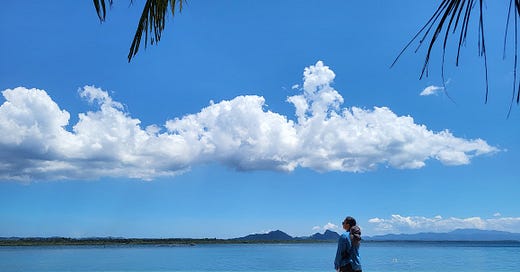



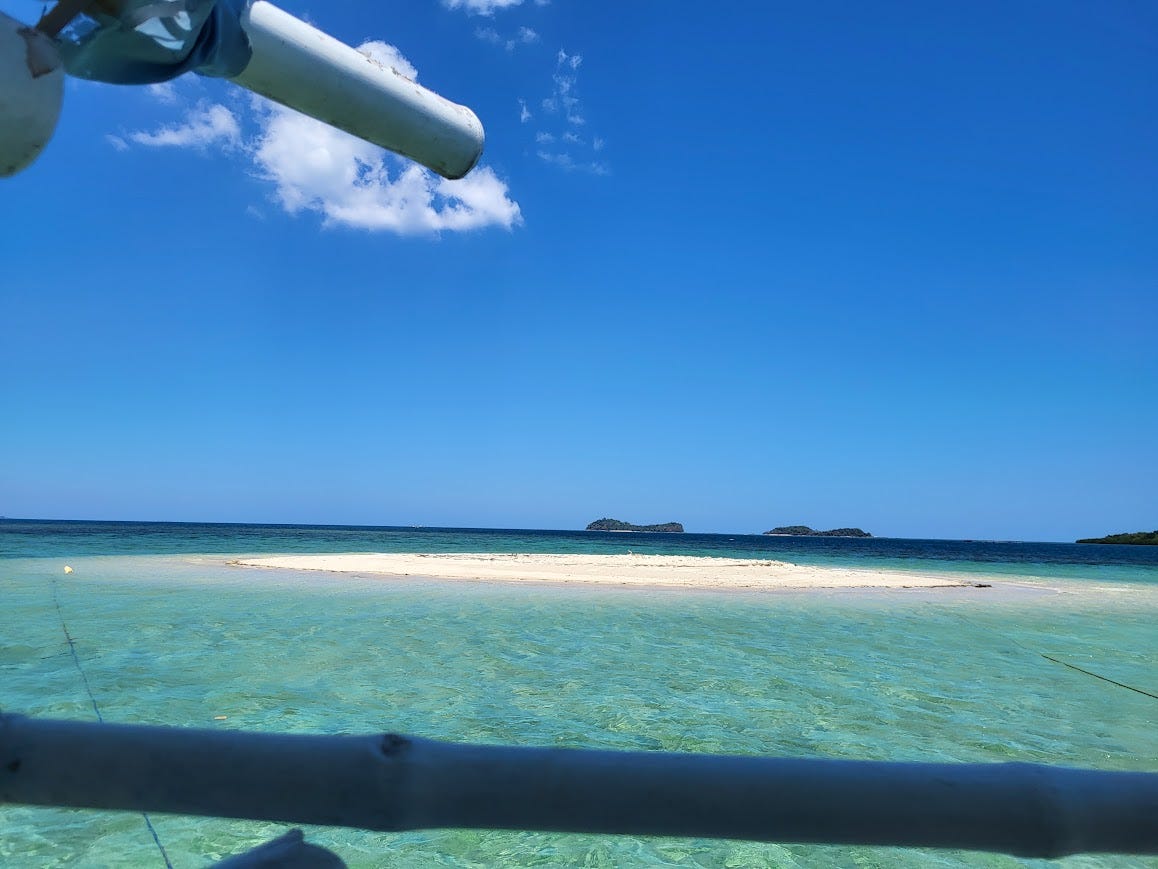


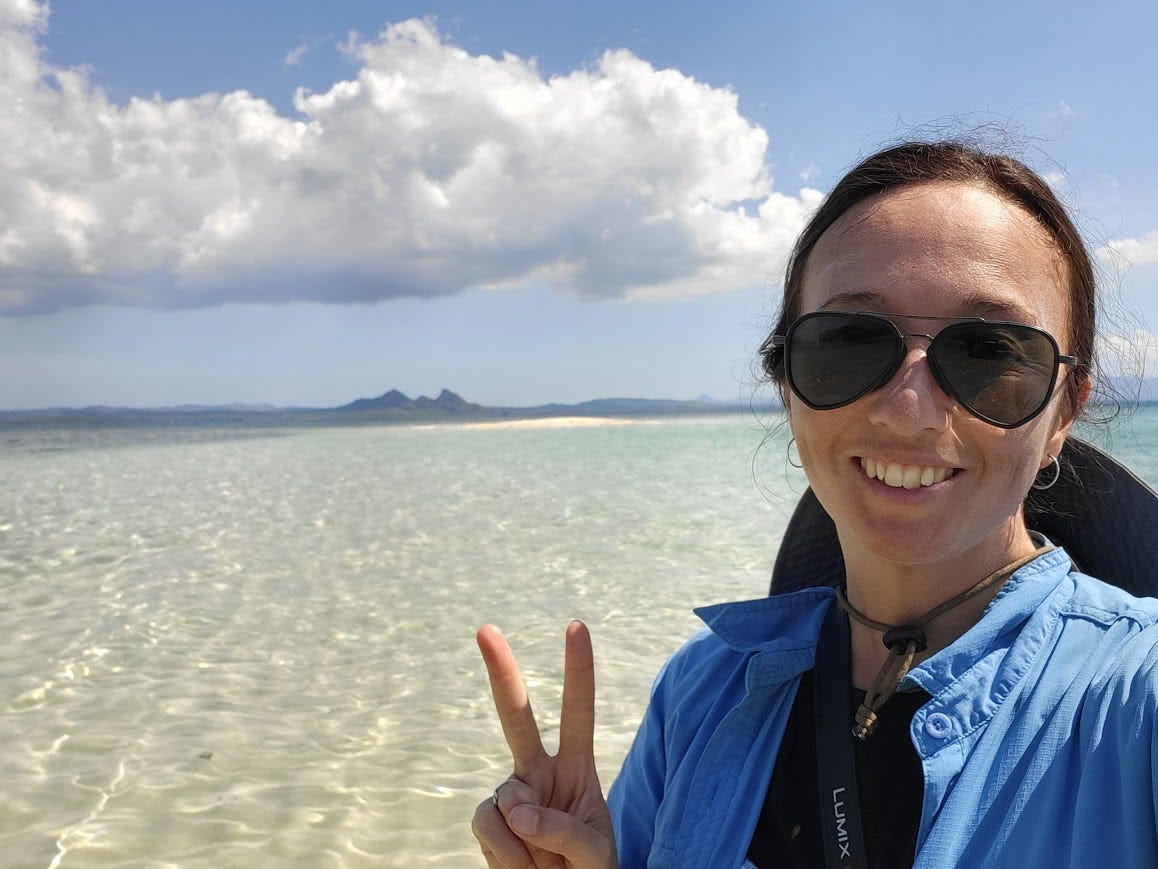

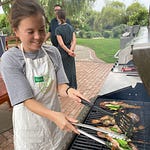


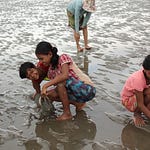

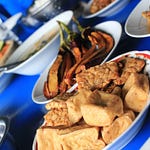
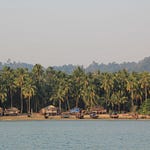
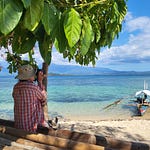
Share this post